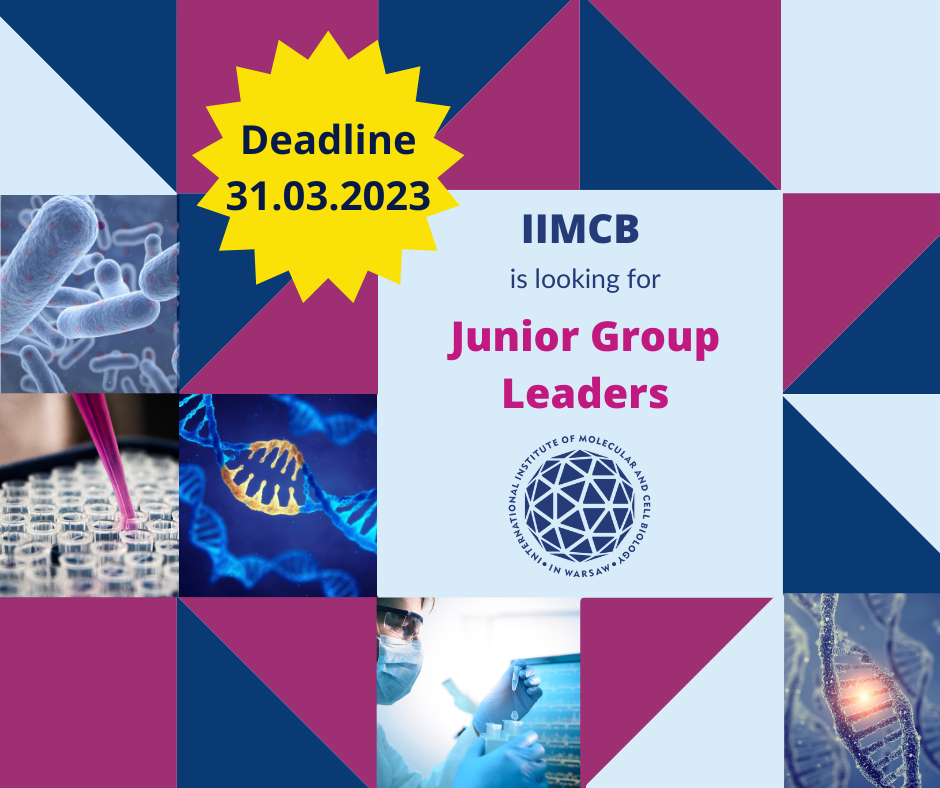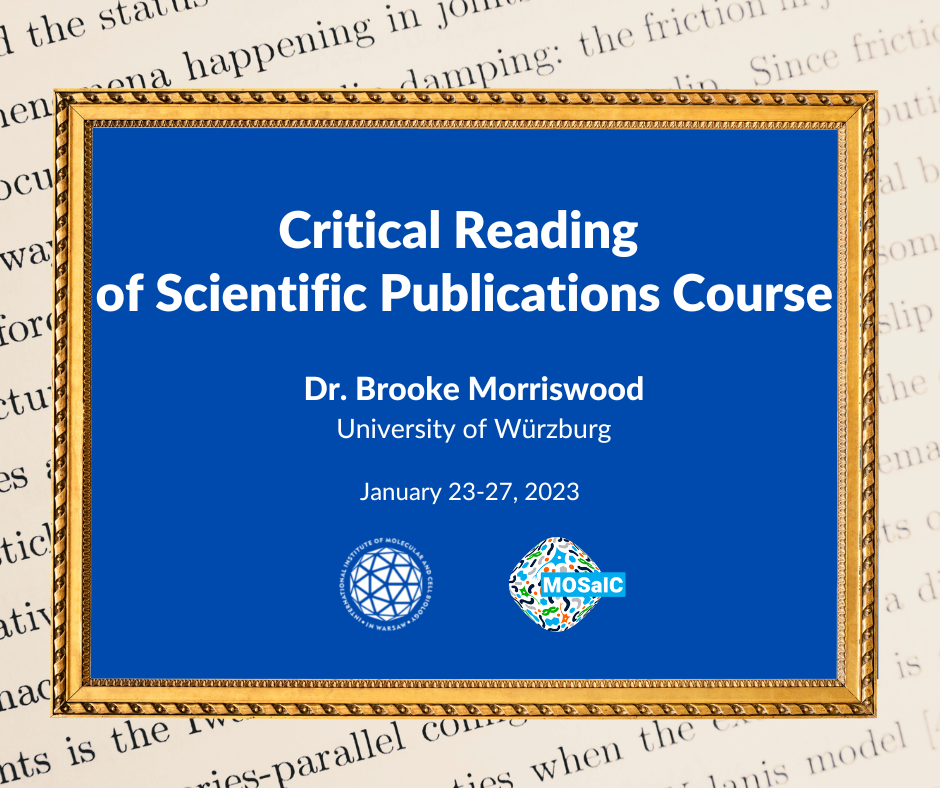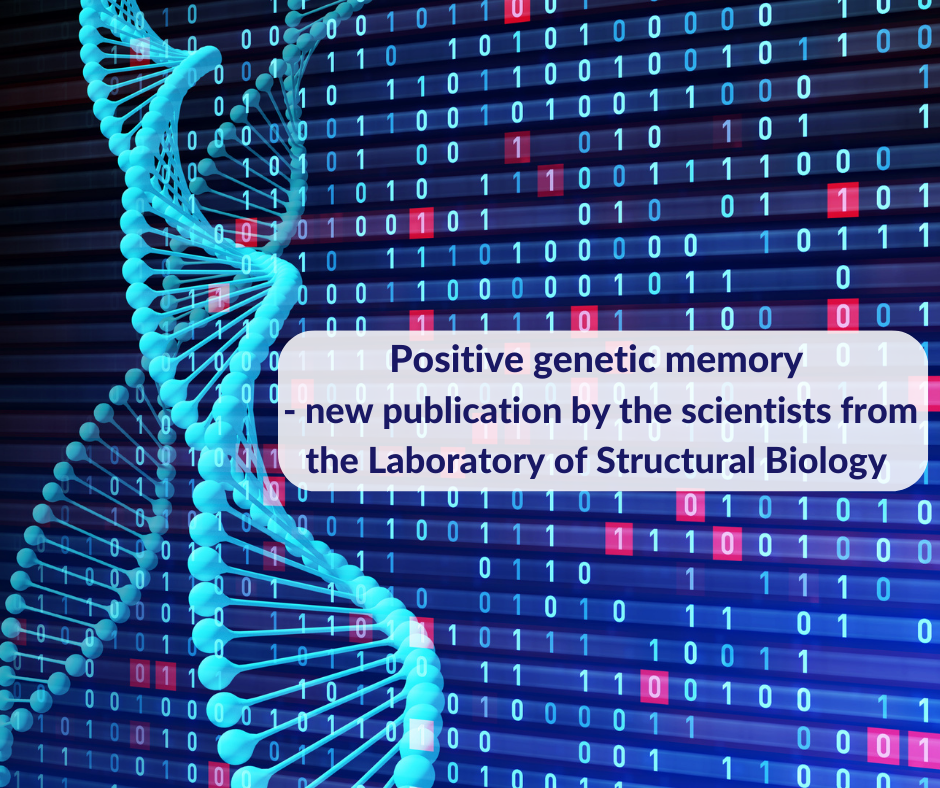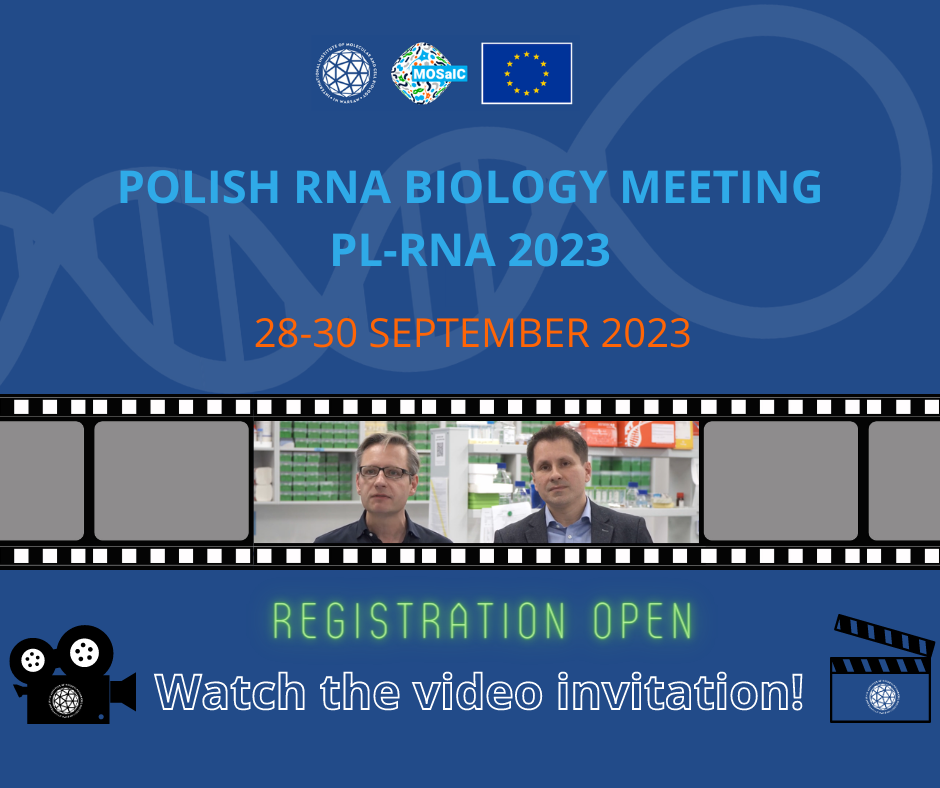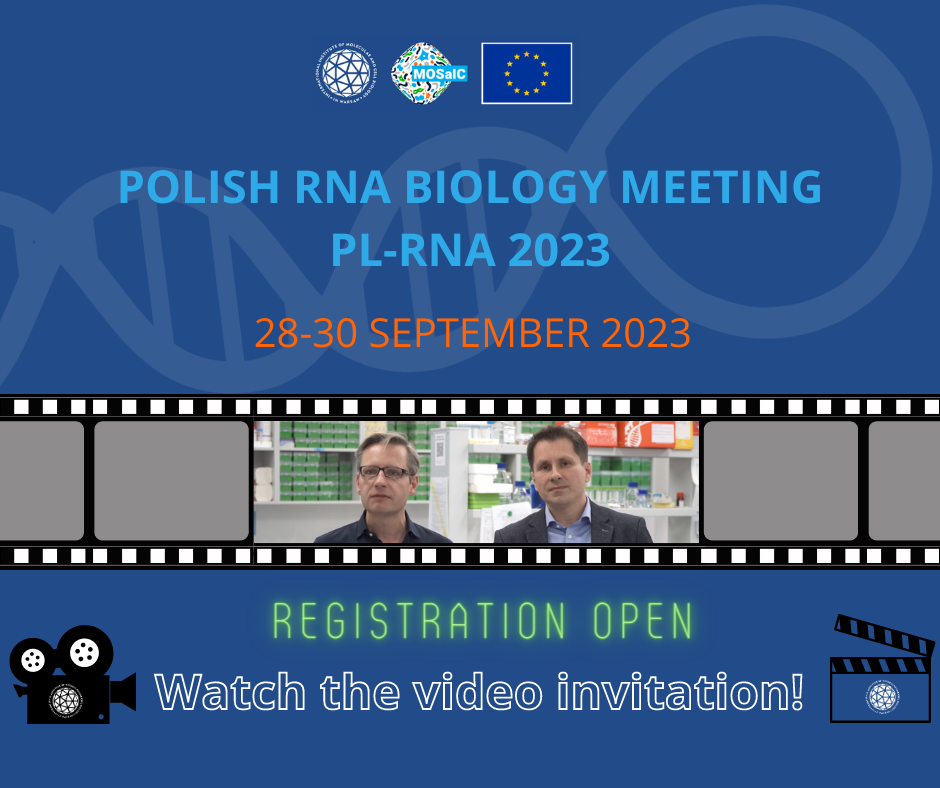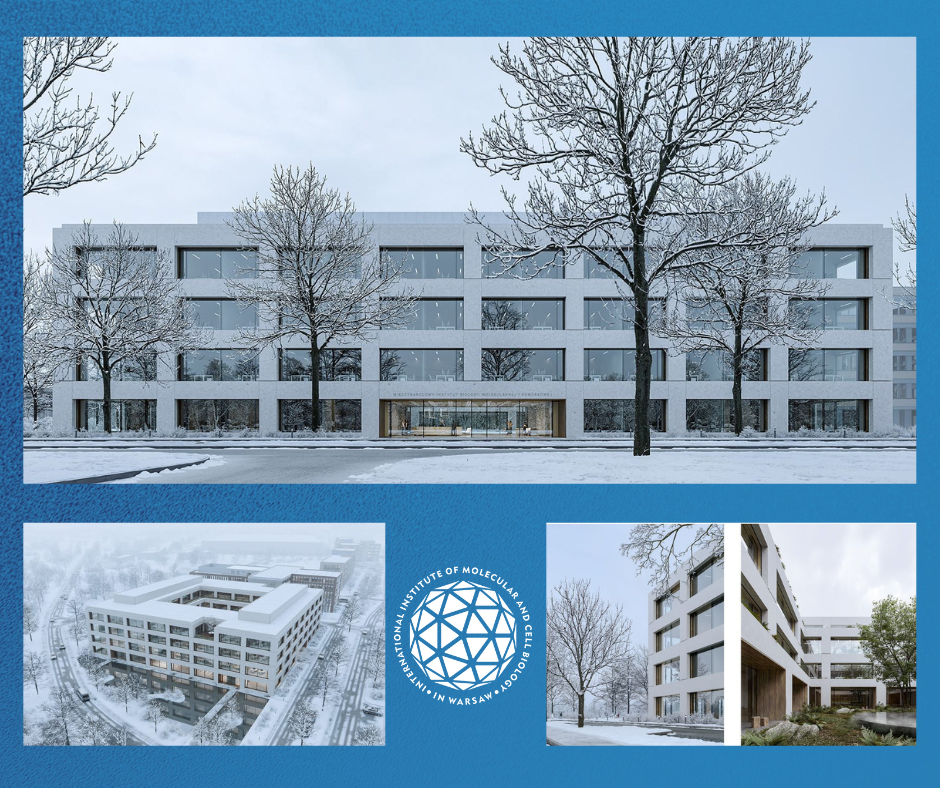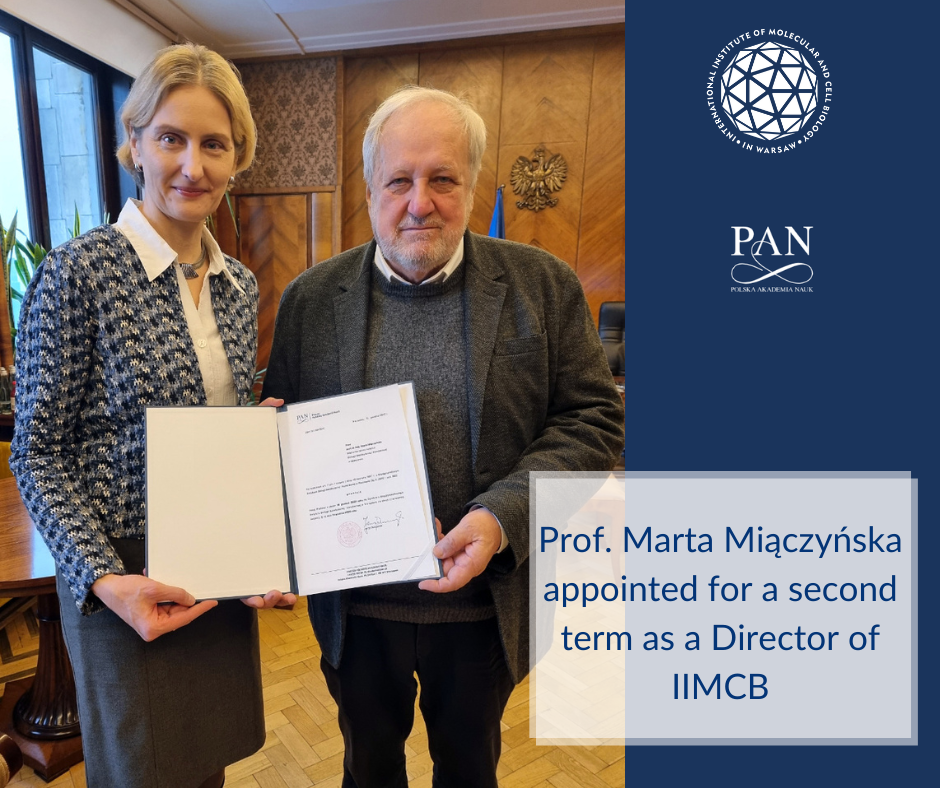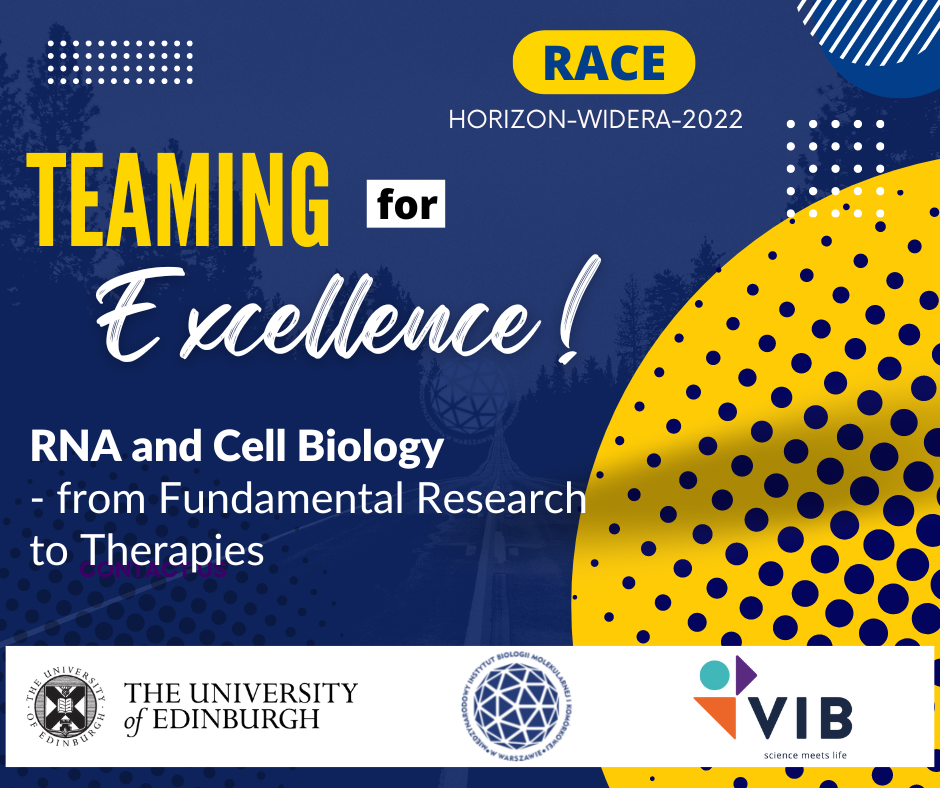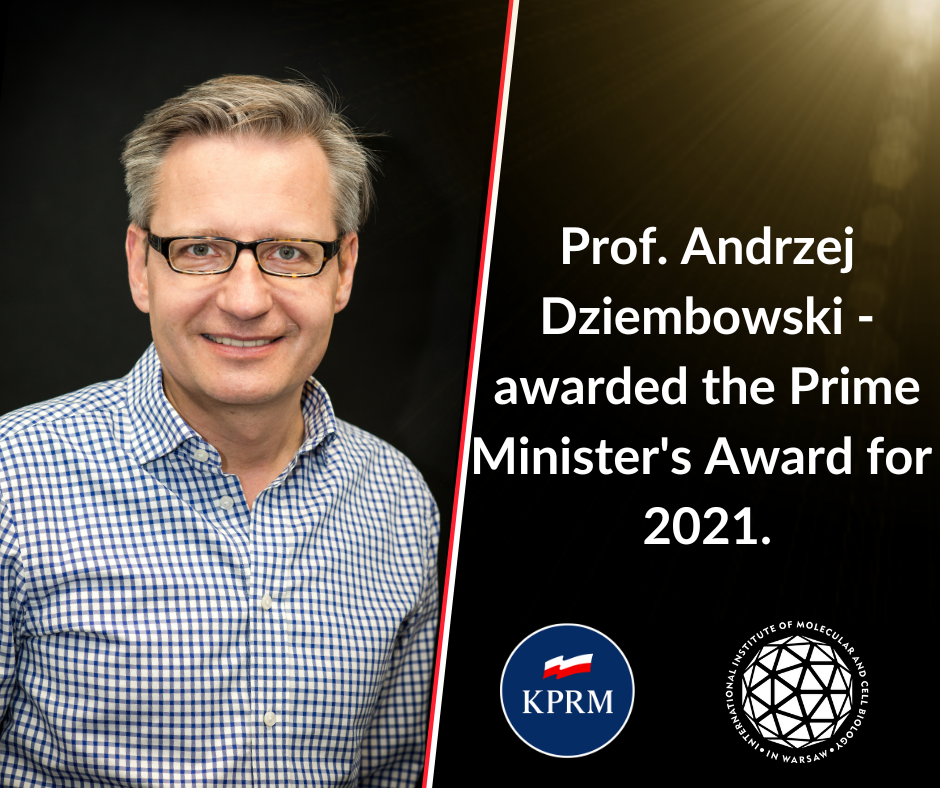The International Institute of Molecular and Cell Biology in Warsaw (IIMCB) invites applicants for Junior Group Leader positions. Below you will find the job description.
The IIMCB is an internationally recognized research institute in Poland where cutting-edge research meets innovation. In line with the IIMCB’s mission, we support ambitious scientists of any nationality to pursue frontier research to respond to health-related societal challenges. We are looking for talented, dynamic, and motivated scientists to establish their first independent research groups. Successful candidates will be supported by the IIMCB’s institutional project entitled “RNA and Cell Biology - from Fundamental Research to Therapies” (RACE) selected for funding in the Teaming for Excellence programme under Horizon Europe. The prospect of a new, larger building with state-of-the-art infrastructure offers the new groups an unprecedented opportunity for scientific and personal development.
The IIMCB hosts a vibrant, multinational community of scientists and is well connected internationally, as exemplified by the composition of the IIMCB’s International Advisory Board and the IIMCB’s membership in the EU-LIFE, an alliance of 15 top independent European research institutes. The IIMCB has an excellent record of attracting funding on national and international levels, and a high proportion of EMBO members among its group leaders.
Candidates’ profile:
Successful candidates must have an outstanding record of scientific accomplishments and be able to develop an independent competitive research program in one of the following areas: (i) RNA biology: drug development, including chemical biology and formulations for RNA therapeutics; (ii) cell biology: tissue, organoid, and animal models of human diseases, modification of patient-derived cells for development of cell-based therapies, (iii) computational biology: AI/machine learning approaches, big data analysis, and advanced bioinformatics.
The proposed program is expected to broaden the scope of and synergize with research performed at the IIMCB (see more at www.iimcb.gov.pl).
The IIMCB offers:
- Junior Group Leader position (a full-time salary with social benefits), with an initial appointment
of 5 years and possible subsequent promotion to a position with rolling tenure upon positive evaluation - Start-up funds and core funding after the start-up funds have been used
- Access to state-of-the-art equipment
- Support in applying for national and international grants
- Full organizational and administrative support by professional English-speaking staff
- Friendly, inclusive, international working environment
- Access to the International PhD program of the IIMCB
Applications should include:
- Cover letter explaining motivation for application
- Curriculum Vitae including a publication list
- Concise statement of 1-3 scientific achievements
- Two-page summary of research plans
- Contact information for two references
How to apply:
- Applications should be sent to This email address is being protected from spambots. You need JavaScript enabled to view it.
- In the subject of the message include "JGL" and your first and last name
- Please include the following statement in your CV: “I hereby agree to the processing of my personal data, included in the application documents by the International Institute of Molecular and Cell Biology
in Warsaw, 4 Księcia Trojdena Street, 02-109 Warsaw, for the purpose of carrying out thecurrent recruitment process.” Your personal data will be processed for the purpose of the recruitment procedure by the International Institute of Molecular and Cell Biology in Warsaw. Full information is available under the link https://bit.ly/3UFWpY2.
The deadline for applications is March 31, 2023. Chosen applicants will be asked to give on-line lectures on
May 11-17, 2023. Short-listed applicants will be invited for on-site interviews during the IIMCB’s International Advisory Board meeting on June 19-21, 2023. The positions are available from September 2023 with the formal appointment date set on a case-by-case basis.
Inquiries about the offer, research environment, and science in Poland are welcome and should be sent
to This email address is being protected from spambots. You need JavaScript enabled to view it..
All information provided by applicants will remain strictly confidential and will be reviewed only by authorized officials of the selection committee.
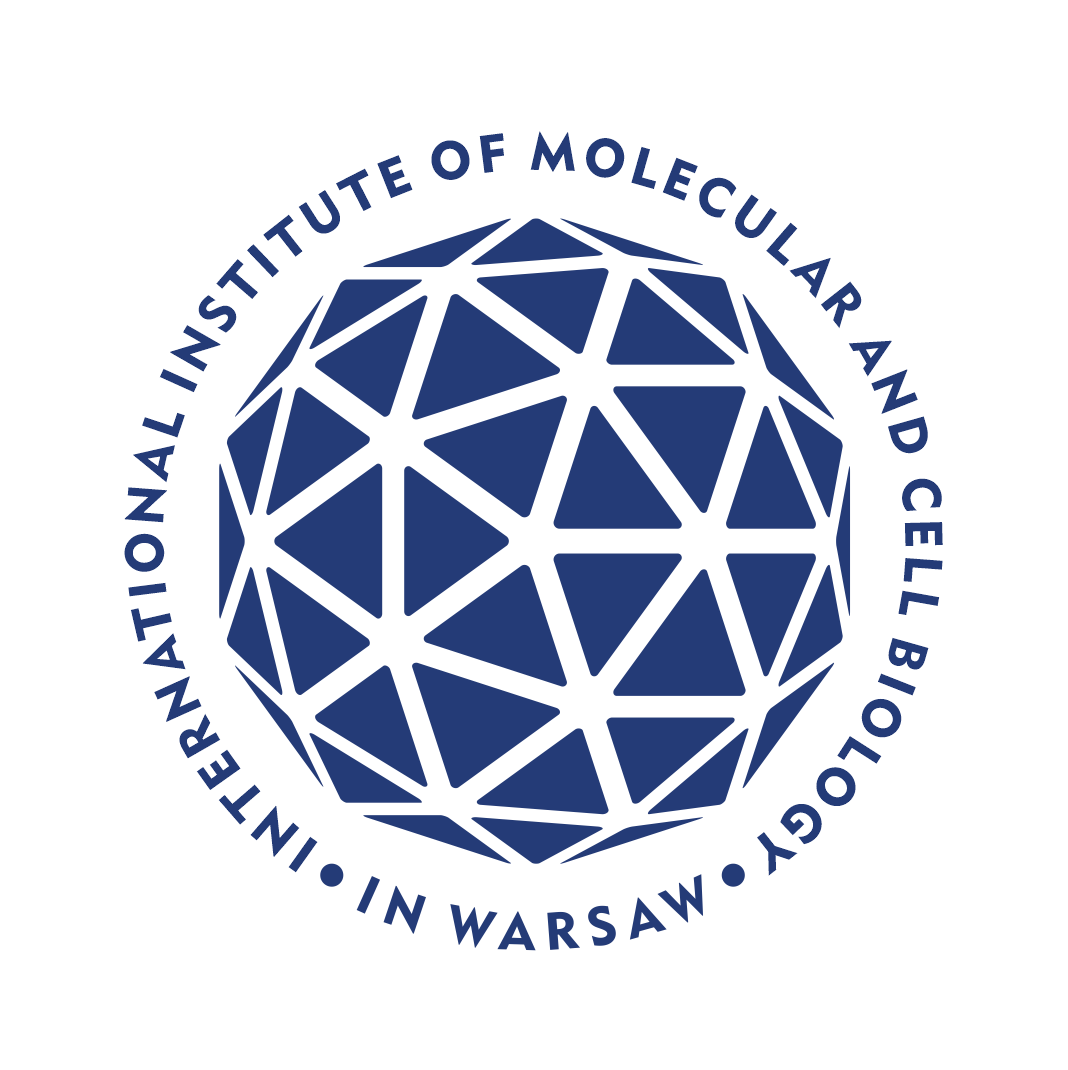

This week, on January 23-27, 2023, the International Institute of Molecular and Cell Biology in Warsaw held a course on Critical Reading of Scientific Papers which consisted of 2 lectures and 3 workshops. The course was highly appreciated by our researchers who emphasize the fact that following and reviewing of scientific literature are very relevant parts of their work.
The online lectures were given by Dr. Brooke Morriswood from the Department of Cell and Developmental Biology, University of Würzburg, Germany. His lectures focused on:
- the importance and value of making reading a regular part of one’s scientific activity;
- the content analysis of the individual elements of a scientific paper;
- the way in which young scientists can get involved in critical reading of scientific papers;
- the manner in which the surveillance of scientific literature can be carried out.
Over 50 IIMCB PhD students and researchers took part in the lectures. Dr. Morriswood provided the participants with a lot of practical clues, useful both for reading and writing scientific publications. - "I’m very glad that Brooke accepted our invitation to conduct the course on Critical Reading of Scientific Papers and I am sure that all of us will benefit from it. The lectures are accompanied by practical workshops for our PhD students that are taking place this week. I would like to thank our PhD students for their engagement and discussions over some interesting examples of scientific papers" - said prof. Marta Miączyńska, the Director of the IIMCB
The onsite workshops were dedicated to the PhD students. Three workshops were led by one of three Lab Leaders from the IIMCB: Prof. Marta Miączyńska, Prof. Matthias Bochtler, and Dr. Katarzyna Mleczko-Sanecka. The participants were divided into small groups in which they analyzed and discussed a chosen scientific article.
Dr. Brooke Morriswood is a group leader in the Department of Cell & Developmental Biology at the University of Würzburg, Germany. He is a molecular cell biologist with interests in the cytoskeleton, motor proteins, and membrane trafficking. He graduated from Cambridge University (2002) with a degree in biochemistry, and completed doctoral studies under the supervision of John Kendrick-Jones at the Laboratory of Molecular Biology, Cambridge (2006). He carried out his postdoctoral studies in the laboratory of Graham Warren at Yale University (2007) and the Max F. Perutz Laboratories in Vienna (2008-2014). Since 2015, Brooke has been a group leader at the University of Würzburg.
The course was supported by the MOSaIC project.

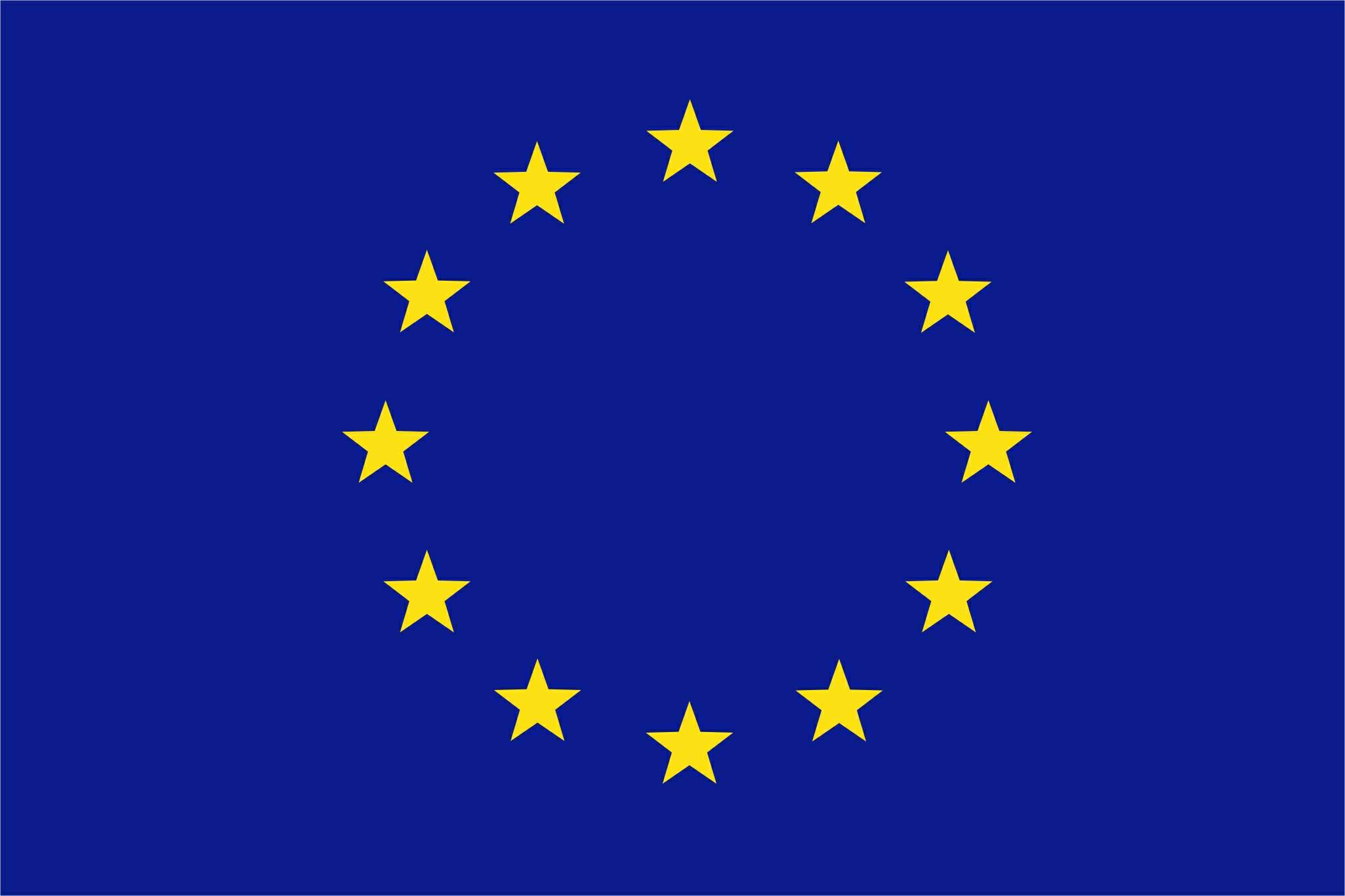
The Critical Reading of Scientific Papers lectures are supported by the MOSaIC project which has received funding from the European Union’s Horizon 2020 research and innovation programme under grant agreement no 810425
{gallery}course{/gallery}
What do we know about the positive genetic memory or transcriptional memory? What does it depend on? What exactly are the factors responsible for it? A recent article published in Cellular and Molecular Life Sciences by researchers from the Laboratory of Structural Biology contributes to a better understanding of positive genetic memory.
Genetic memory depends on a feed-forward loop that deposits H3K4 methylation, an activating chromatin mark, on already active promoters and enhancers. How the methyltransferases KMT2/MLL find their chromatin targets has not been understood. Stroynowska-Czerwinska and colleagues now show that clustered PHD domains in the KMT2/MLL methyltransferases alone are sufficient for the targeting. The known promoter or enhancer preferences of individual MLL/KMT2 methyltransferases are shown by the authors to be attributable to the presence or absence of the CXXC domains, respectively. The work presents the first genome-wide characterization of a histone reader domain in cells. MLL/KMT2 genes mutations are strongly associated with cancer. The authors show that even a single cancer-related missense mutation in the PHD domains can abolish targeting specificity. Therefore, the work also has medical implications.
Article reference:
Stroynowska-Czerwinska, A.M., Klimczak, M., Pastor, M. et al. Clustered PHD domains in KMT2/MLL proteins are attracted by H3K4me3 and H3 acetylation-rich active promoters and enhancers. Cell. Mol. Life Sci. 80, 23 (2023). https://doi.org/10.1007/s00018-022-04651-1
https://link.springer.com/article/10.1007/s00018-022-04651-1
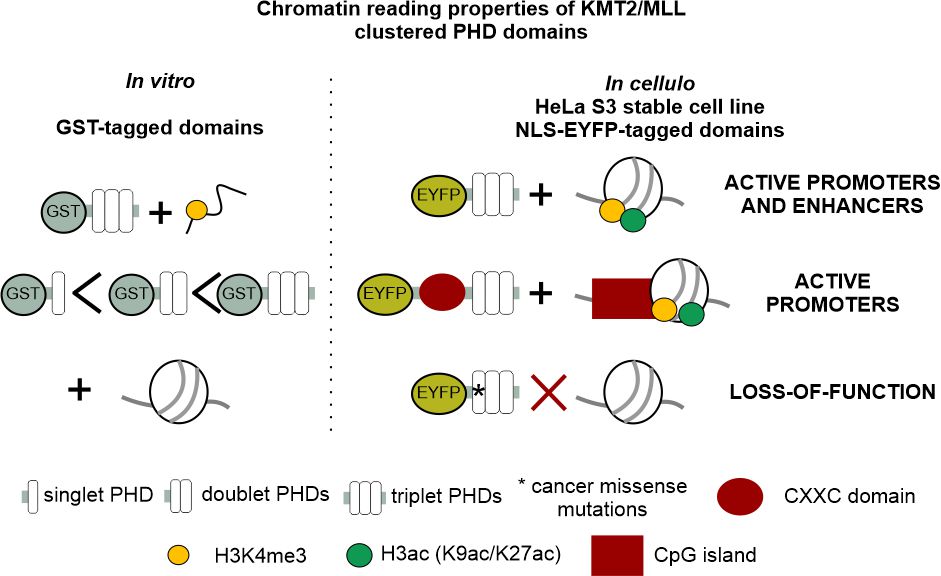
It will be one of the most important scientific events in Poland in 2023! We are happy to announce that the registration for the Polish RNA Biology Meeting PL-RNA 2023 conference starts today! It is also our great pleasure to present to you a short video concerning the conference. Prof. Andrzej Dziembowski - Chairman of the Organizing Committee and Prof. Gracjan Michlewski - Chairman of the Scientific Committee – are announcing the event, talking about the program details and invited guests.
The field of RNA biology - is a rapidly growing field of life sciences, relating to issues such as RNA biology in prokaryotic and eukaryotic systems, transcription, RNA processing and metabolism and RNA in therapy and medicine. The main purpose of the meeting is to bring together outstanding scientists, specialists in RNA biology from Poland and overseas, to exchange knowledge, experience and facilitate networking. The event will be also an excellent opportunity for PhD students and postdoctoral researchers to present their best research projects.
World-renowned specialists Prof. Lori Passmore, Prof. Alfredo Castello, Prof. Andrea Rentmeister and Prof. Witold Filipowicz have confirmed their participation in the conference.
Registration link: https://pl-rna.iimcb.gov.pl/
The Chairman of the Scientific Committee is Prof. Gracjan Michlewski, Head of the Laboratory of RNA-Protein Interactions - Dioscuri Center, IIMCB.
Members of the Scientific Committee are: Prof. Sebastian Glatt, Malopolska Biotechnology Center, Jagiellonian University, Prof. Jacek Jemielity, Warsaw University, Prof. Kinga Kamieniarz-Gdula, A. Mickiewicz University in Poznan, Prof. Elżbieta Kierzek, Institute of Bioorganic Chemistry of the Polish Academy of Sciences in Poznan and Prof. Joanna Kufel, Warsaw University.
The Chairman of the Organizing Committee is Prof. Andrzej Dziembowski, Head of the RNA Biology Laboratory - ERA Chairs Group, IIMCB.
The meeting is organized within the framework of the MOSaIC project, funded by the Horizon2020 ERA Chairs Program.
More information: https://pl-rna.iimcb.gov.pl/
This is a great news to start the year! Natalia Szulc from the Laboratory of Protein Metabolism has received the Fulbright Junior Research Award! Our sincere congratulation! Natalia is the first person from our Institute to receive this prestigious scholarship!
The Fulbright Junior Research Award is a scholarship for doctoral students to travel to a university, research institute or NGO in the United States to carry out a project related to their dissertation topic.
Thanks to the Fulbright Junior Research Award, Natalia will gain experience in developing drugs based on targeted protein degradation technology. These are novel and promising therapies based on the manipulation of the ubiquitin-proteasome system to selectively degrade chosen proteins, which allow targeting diseases such as cancer by directing the removal of tumor-promoting proteins.
Natalia will carry out a research project involving computational modeling of protein degraders at the Dana-Farber Cancer Institute, an institute with world-renowned expertise in targeted protein degradation technology.
We wish You happy and peaceful Christmas time!
May the New Year bring you health and prosperity!

We already know the winner of the competition for the architectural concept of the new IIMCB seat. On Friday, December 16, 2022, the results of the competition organized by the IIMCB in cooperation with the Association of Polish Architects, were officially announced. The event was held under the honorary patronage of the Minister of Education and Science.
Three prizes and two honorable mentions were awarded in the competition. The first reward, including a cash prize of the amount of 35,000 PLN and an invitation to negotiate a sole-source contract for the performance of a service based on the selected competition work was awarded to Atelier Tektura Sp. z o. o - a studio from Warsaw.
The work was appreciated for a very good, rational and logical solution to the layout of the rooms. Moreover,the flexibility of the project was appreciated thanks to the possibility to modify the layout as well as structural solutions. The justification of the results also emphasized the good organization of traffic in the investment area with the use of internal parking. The Competition Jury also appreciated a simple aesthetic body with a dignified character which reflects the nature of the institution. In terms of aesthetics, the idea of including wooden elements in the facade was appreciated too.
The project envisages 4 above-ground floors and 1 underground floor, with the total area of the building of over 20,000 m² and the usable area of nearly 14,000 m².
The second prize, in the amount of 25,000 PLN, was awarded to Projekt Praga Sp. z o. o – a studio from Warsaw, and the third prize, in the amount of 15,000 PLN, was awarded to BAAS arquitectura - a studio from Barcelona. The honorable mentions were awarded ex aequo to the studio Heinle, Wischer und Partner Architekci Sp. z o.o. from Wroclaw and two studios that submitted a joint project: BRUTHER from Paris and TŁO Michał Sikorski architect from Warsaw.
- The goal of the competition was to select the best concept of the IIMCB building in terms of architecture, functionality and usability which will be in line with the further dynamic development and strategic goals of the Institute - and in my opinion this has been achieved, said Prof. Marta Miączyńska, the Director of the IIMCB, after the announcement of the results of the competition.
There will be 20 Research Groups and 7 Specialized Apparatus Laboratories in the building. The new space will enable scientists to perform professional expertise and strengthen cooperation with Polish biotechnology and pharmaceutical industries.
There were 14 projects submitted in the first stage of the contest, whereas 5 of them were invited to the second stage.
{gallery}konkurs{/gallery}
Professor Marta Miączyńska has been selected for the position of the Director of the IIMCB and with this nomination, she has begun her second term for years 2022-2026. Professor Marta Miączyńska has been chosen in an international competition and on the recommendation of the International Advisory Board. She was appointed to this position by the President of the Polish Academy of Sciences, prof. Jerzy Duszyński.
Professor Marta Miączyńska graduated from Jagiellonian University. She received her PhD degree in genetics at the University of Vienna (1997). Later on, she obtained her post-doctoral title (2008), and became a professor in 2013. In 2013-2015 she served as a deputy director at the International Institute of Molecular and Cell Biology in Warsaw.
Professor Miączyńska’s biological research focuses on the molecular mechanisms integrating membrane transport, in particular endocytosis, with intracellular signalling pathways. She discovered e.g. a distinct population of early endosomes in the cell, so called APPL endosomes. Moreover, together with her group, she characterized the role of endosomes as signaling platforms for the receptors of growth factors and cytokines.
She is a co-author of over 60 publications cited more than 3000 times. She received fellowships from Austrian Science Fund, Human Frontier Science Program Organization, and L’Oreal Poland for Women in Science.
During her scientific career, she has obtained numerous prestigious grants. She has been the head of projects funded by British Wellcome Trust, American Howard Hughes Medical Institute, Polish-Swiss Research Programme, National Science Center, Foundation for Polish Science, Max Planck Society, and the Ministry of Science and Higher Education. She has participated in various grants committees, including European Research Council. She has been a Council member of the National Science Center (2016 – 2018), a member of the Polish Academy of Sciences, a member of European Molecular Biology Organization (EMBO) as well as Academia Europaea.
We are proud to announce that our project entitled RNA and Cell Biology - from Fundamental Research to Therapies, acronym RACE, has been selected for funding in the Teaming for Excellence programme under Horizon Europe, with the evaluation score of 14.5 out of 15 points! The project topped the ranking list out of 31 projects evaluated in the second stage of the competition. The RACE will last six years and will be granted nearly 15 M euro.
The aim of the RACE is aligned with IIMCB ambitious development plans for the years to come. It will elevate IIMCB into a world-class Centre of Excellence in RNA and Cell Biology that will combine outstanding science with professional commercialisation activities.
The project will be coordinated by Prof. Marta Miączyńska, the Director of IIMCB and implemented within a consortium of three institutes: IIMCB – the Coordinator and main RACE beneficiary, and two partners: the Medical Research Council, Human Genetics Unit of the University of Edinburgh (UoE–MRC HGU) and Flanders Institute of Biotechnology (VIB) in Belgium.
Both UoE–MRC HGU and VIB possess important expertise to actively support IIMCB in achieving its goals and implementing RACE key activities which are: recruiting new research groups and broadening collaborations with external partners, training of young generation of IIMCB researchers for academia and industry, developing modern core facilities, establishing internal systemic technology transfer support (Technology Incubator), and last but not least – digitalizing and upgrading management and administrative processes.
The RACE project will be funded under HORIZON-WIDERA-2022-ACCESS-01-two-stage —Teaming for Excellence.
Teaming for Excellence is a part of the Widening participation and strengthening the European Research Area programme of Horizon Europe. It creates and supports centres of excellences that should serve as role models nationally and in the region to stimulate performance, new investments and reforms of national research and innovation systems in countries with lower R&I potential.
Prof. Andrzej Dziembowski, Head of the Laboratory of RNA Biology – Era Chairs Group, was awarded the Prime Minister's Award for outstanding scientific achievements in 2021. Our sincerest congratulations!
Prof. Dziembowski was recognized for research on understanding the mechanisms of RNA degradation in eukaryotic cells and the control of transcript stability resulting from RNA polymerase II activity in various human tissues and cells. The justification also emphasizes the importance of the discovery he and his team made regarding the role of oligouridylation of the 3' ends of transcripts of mobile and repetitive elements in the human genome -LINE1, as well as the identification and description of a new family of poly(A) polymerases TENT5 in the human genome and the elucidation of their functions.
This year the Prime Minister's Awards honored 40 scientists. Traditionally, awards were given in three categories: (I) outstanding doctoral dissertation, (II) highly commended scientific achievements that are the basis for awarding the degree of doctor of habilitation, and the most prestigious (III) for outstanding scientific achievements, including artistic creation or implementation activity.

